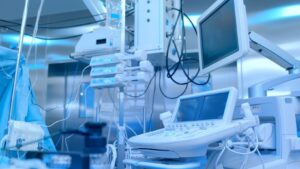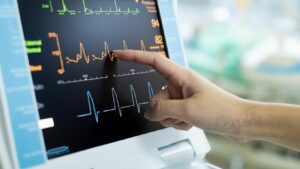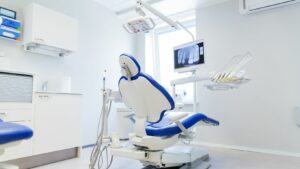In the rapidly evolving world of healthcare, medical devices stand at the forefront of innovation. They’re not just shaping patient care, but also redefining the entire medical landscape. This article aims to bring you the latest updates and breakthroughs in this dynamic field.
From diagnostic tools to therapeutic equipment, medical device advancements are transforming lives and improving healthcare outcomes every day. Whether you’re a healthcare professional, a patient, or just someone interested in medical technology, you’ll find the insights shared here enlightening.
Medical Device News

Embracing new technologies, medical devices continue to transform. Innovation accelerates functionality, boosting both the efficiency and precision of patient diagnosis and treatment.
Take, for instance, wearable technology. In years past, it’s gained prominence, with devices like smartwatches and fitness bands now capable of monitoring vital signs such as heart rate and blood oxygen levels. It’s a game changer, providing constant, real-time health updates.
In the realm of AI, machine learning algorithms fuel advancements, optimizing operations, and enhancing patient outcomes. Take robotic surgery systems; these allow unprecedented precision during delicate procedures. AI plays a vital role, making complex surgeries safer and more accurate.
Additionally, 3D printing is revolutionizing the medical device industry. Prosthetics, implants, and models can now be created with an exact likeness, leading to personalized patient treatment plans. In essence, technology is reshaping the path of medical devices, altering healthcare’s landscape. Forging new frontiers, it’s bringing about breakthroughs never before imagined.
Overview of Medical Device Industry

Spearheaded by technology, the medical device industry holds great prominence in the healthcare sector. The innovative trend supports superior healthcare delivery, satisfying vital patient-care needs.
Technologies like wearable devices expand preventative care by facilitating real-time health tracking, avoiding potential health crises. Similarly, Artificial Intelligence, especially machine learning algorithms, accentuates diagnostic accuracy, beneficially reducing human error. Shouldn’t be underestimated latest discovering in Pulsed Electromagnetic Fields, companies like Sensonica offer effective portable PEMFT devices that speed up sports and injury recoveries of tissues.
Moreover, 3D printing enables the manufacturing of personalized medical devices, promising efficient treatments tailored to individual patient’s needs. The industry’s capacity for continuous transformation lends to its rapid growth. Technological advancements are introducing medical breakthroughs, reshaping the healthcare landscape in ways formerly deemed unrealistic.
Key Players in the Medical Device Sector
In the continually evolving landscape of the medical device industry, several key players markedly contribute to progression and innovation. Medtronic, for instance, is a notable entity, leading the charge through their profound exploration of AI-based tools, shaping the future of patient monitoring and diagnostics.
Other significant players include Johnson & Johnson, heralded for their strides in surgical devices and wound care products, and Boston Scientific, revered for their groundbreaking advancements in stent and pacemaker technologies. Philips, also a notable mention, continually showcases their mastery in imaging technology, thus enabling exceptional care for patients.
Undeniably, these organizations represent essential catalysts, advancing the capabilities of the medical device sector and driving novel transformations in healthcare delivery. Through their pioneering efforts, unrivaled technologies become ever-present in medical environments, fostering superior care of ever-increasing precision, and catering to the unique healthcare needs of diverse patients.
Challenges Facing the Medical Device Industry

Despite the advancements and the significant role medical devices play in healthcare, the industry isn’t without its challenges. There’s a constant pressure to innovate while maintaining stringent safety standards and regulatory compliance.
The integration of AI and machine learning, for instance, brings about data privacy and security concerns. Furthermore, the increasing reliance on wearable technologies and real-time health monitoring devices requires robust infrastructure and seamless connectivity.
Companies like Medtronic, Johnson & Johnson, Boston Scientific, and Philips are at the forefront of addressing these issues, paving the way for a future where medical devices don’t just enhance healthcare delivery but revolutionize it. They’re not just creating products; they’re creating a new paradigm of patient care that’s personalized, precise, and proactive. The journey may be fraught with challenges, but the potential rewards for patient care are immense.
